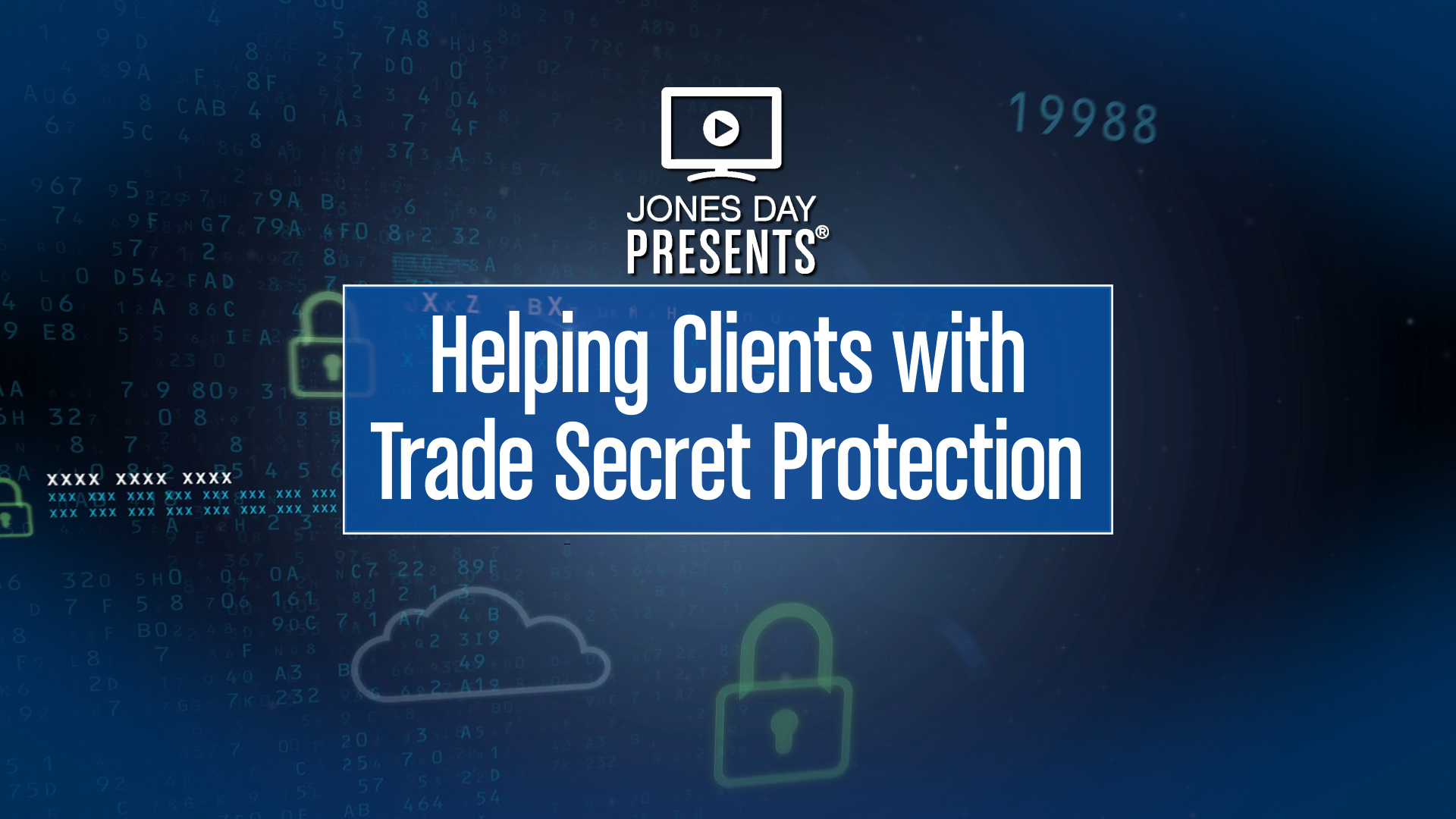
JONES DAY PRESENTS®: Helping Clients with Trade Secret Protection
Most trade secret misappropriation is the work of a company employee or former employee. Jones Day partners Andrea Weiss Jeffries, Steve Zadravecz, Rebecca Swindells, Dr. Christian Paul, and Jon Linas explain why strategic, effective trade secret protection requires a comprehensive program comprised of carefully considered processes and protocols.
Read the full transcript below:
Andrea Weiss Jeffries:
Many people worry about hacking, cyber threats, and those things do happen, but most trade secret misappropriation occurs at the hands of an employee or a former employee.
Steve Zadravecz:
And in a number of the audits that we've performed from time to time clients have big gaps in their processes, they don't do an exit interview for a sales person, they don't collect their computer for three weeks, or they're not on top of evaluating what type of access that that employee has to the computer system and immediately shutting it down. While in theory the client says, yes, an employee departs we have to cut off access, but maybe they don't have a protocol in place to make sure that the IT people are informed when an employee resigns. And so these types of gaps in process or in practice, even though they might have a good policy in place, is something that we've been able to highlight for clients and help them develop a better strategy and best practices to protect those trade secrets.
Rebecca Swindells:
Sophisticated clients should also be tracking and monitoring use of such data, such information, so that when a problem does arise it's quite easy to figure out how it arose, and that will be useful evidence in prosecuting these cases if you can show when certain documents may have been accessed by whom and so forth.
Dr. Christian Paul:
Clients are most concerned that in litigation the question is whether their trade secret will be actually still kept confidential, which was a bit concerned on the German procedural laws for example, before we had the new laws. But nowadays these problems can be addressed. There are options to have a court proceeding and still make sure that the secret is not leaking outside of the group of people that actually should be dealing with it.
Jon Linas:
What's hardest is in my opinion is not overstepping your bounds, right? When you're in trade secret litigation it's very important to define what the trade secret is and not to do that too broadly, so that you're implicating information that may be public and that won't be as easy as sell to a court as something that's private and valuable to the company. In the same regard, when you're enforcing non-compete agreements, of course you have to abide by the law of the jurisdiction, but people have a right to work. And if you enforce non-compete agreements in an over broad way you're going to get a lot of resistance from the decision makers in those cases.
Andrea Weiss Jeffries:
Clients are sometimes concerned that it does take a lot of effort to put in a comprehensive trade secret program. The fact of the matter is if you're going to have a program you should do one that is comprehensive because taking some steps but not others just leaves you with holes where you can still suffer from misappropriation as though you had almost no protection in the first place. And so it does require a comprehensive attention to the issue. It seems perhaps harder than it is, but it's important because if you really do have important trade secrets that you don't want to get out you should spend the time and effort to protect them.






